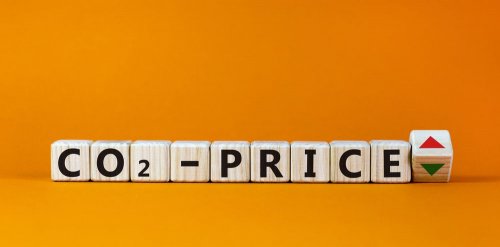The European Steel Association (EUROFER), which represents almost the entire steel industry in Europe, has called on the EU to support 60 major low-carbon projects across the continent by 2030.
This was reported on May 30 by the publication Euronews.Green .
According to EUROFER CEO Axel Eggert, the proposed projects will reduce carbon emissions by more than 80 million tons over the next eight years. This equals more than a third of today's emissions and is a 55% reduction from 1990 levels.
Eggert emphasized that huge efforts are needed to decarbonize steel.
The introduction of innovative technologies to move from fossil fuels to sustainable materials will be the biggest revolution in steelmaking since the industry's inception. There are currently four promising technological pathways to achieve this, as outlined in the EU report "Climate Neutral Steel Production in Europe".
First, an optimized blast furnace route that reduces carbon emissions through capture, storage and use. The next method is the direct reduction of iron ore using gas or hydrogen instead of coal. The third way is based on the resumption of smelting, which makes it possible to turn iron ore directly into steel. Finally, the electrolysis path, which at this stage is at a lower level of technological readiness.
Scrap metal will also play an increasing role: already today 43% of steel production in the EU falls on recycled steel produced in electric furnaces. However, millions of tonnes are currently being exported from the EU to countries with lower environmental standards.
“There is no prevailing or better technology. On the contrary, they can be combined in many ways. Their development will depend on local conditions, such as access and availability of competitively priced energy and resources, and the existence of energy and carbon storage infrastructure,” Eggert said.
This is where EU policy comes into play. “The expected financing needs for our 60 low-carbon projects by 2030 are €85 billion, of which €31 billion will be capital investment and €54 billion operating costs. In terms of energy, we will need over 150 TWh of clean electricity , half of which is needed for the production of hydrogen," he said. This is twice the annual electricity consumption in Belgium.
Several low-carbon steel projects initially called for replacing coal with gas until there was widespread access to hydrogen, but the devastating war in Ukraine has threatened gas's eventual role as a transitional fuel. “Now the steel industry will demand more hydrogen from day one, but how do we massively move from coal and gas to green hydrogen over the next years when there is basically no infrastructure?” Eggert asked.
So far, this issue has been left unaddressed by EU policy makers, as have concerns about rising energy and carbon prices, not to mention raw material shortages, which could put under threate investment in clean technologies.
“Enhanced protection against carbon leakage, affordable green energy and rapid financial support are key elements to ensure that EU and national policies are truly fit for successful industrial decarbonisation,” Eggert said.
According to EUROFER, the EU's main financing instrument for the Emissions Trading Scheme (ETS) was found to be inadequate. The Fund was overwhelmed with applications, and the requests exceeded the available EU budget by ten times.
As a result, Eggert called for transitional free allocations to reward new investments in breakthrough technologies, at least in the early years when they are introduced on an industrial scale.
"Benchmark rules should reflect the gradual transformation of the sector and allow for a longer transition period to allow steel companies to streamline financial resources for low-carbon projects," he said.
Before EcoPolicy reported that the European Steel Association wrote open letter to the European Parliament and member countries regarding changes to the EU Emissions Trading System (ETS), convinced the association will "derail" the transition to green steel production in Europe.





